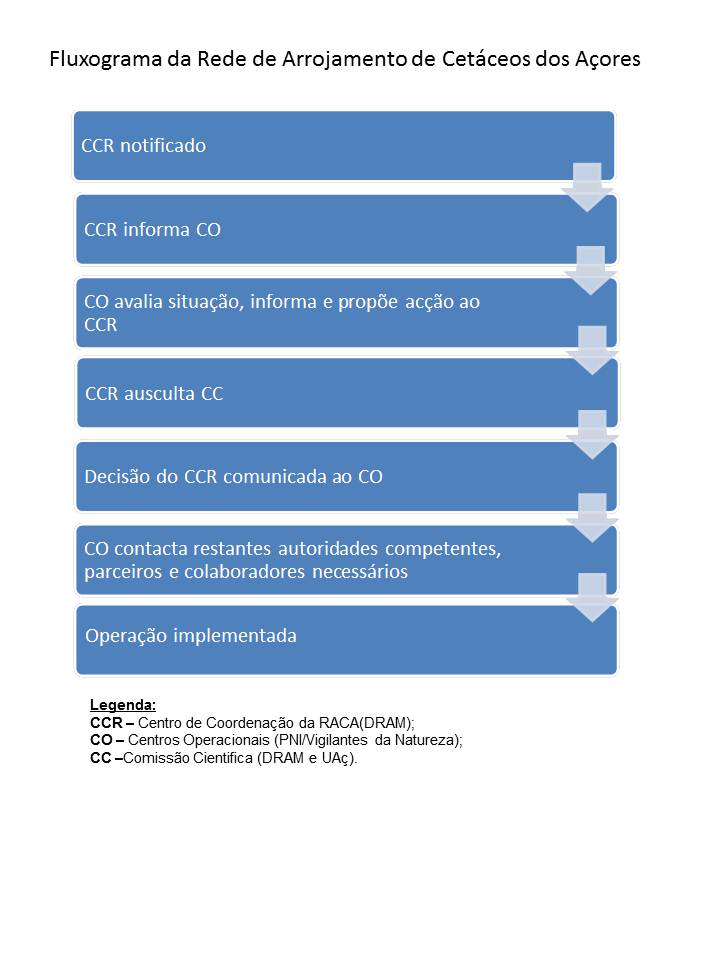- Maritime Activities
- Biodiversity
- Sea Management
- Marine Protected Areas
- Licensing
- Projetos
The Network of Cetaceans in the Azores (RACA) has been implemented since 1999 and has been legislated by Resolution No 72/2006 of 29 June, with the following objectives:
Minimise possible threats to human safety and health from mammalian rice;
Minimise pain and suffering of live arrows;
Obtain maximum scientific and educational benefits from live and dead rice animals.
This network brings together volunteers from all islands in the archipelago and is coordinated by the Regional Directorate for the Environment, through the Directorate for the Conservation of Nature, based on the island of Pico. The University of the Azores is a partner in this project through its three poles in Faial, Terceira and São Miguel. The Talassa Space is the operational centre on the island of Pico.
Cetacean rice is a phenomenon that has a major impact on the media and the general population, and systematic collection of scientific information is a valuable contribution to knowledge of the natural phenomena of the marine environment on a regional and global scale. Regular training and practice of a voluntary corps will facilitate a timely and appropriate response to each situation.
Natural variation and to detect changes in mortality levels and patterns, levels of contaminants and other variables that can serve as indicators of the state of coastal populations of marine mammals and of the ecosystems of which they are part.
Collaborate with us, contact us at + 351 912233518.







